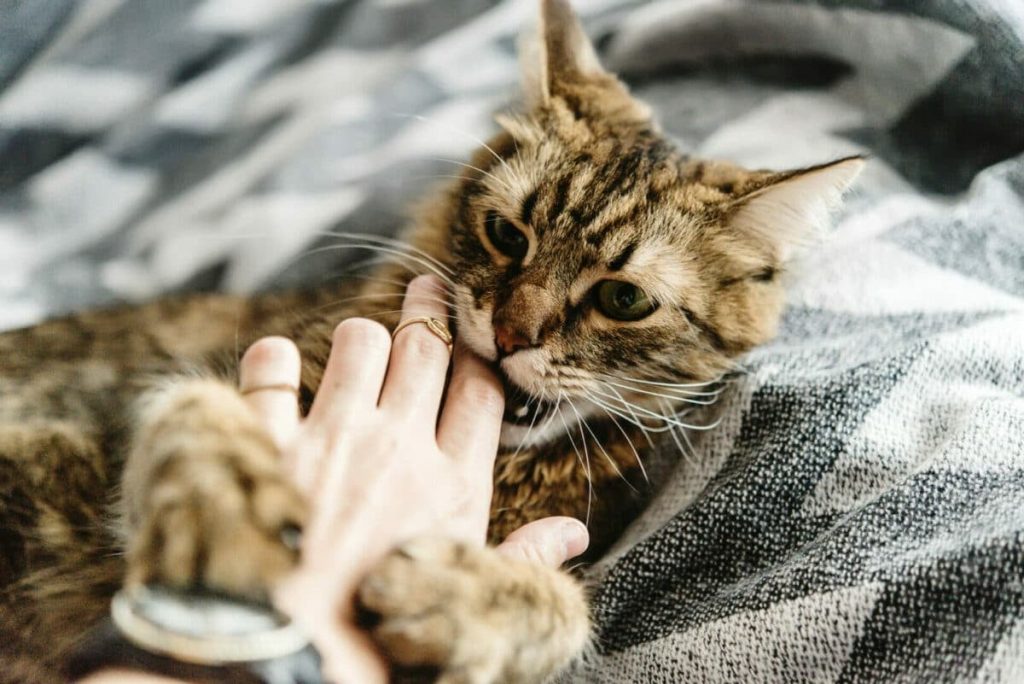Cats may bite when being petted for a variety of reasons, and understanding the cause can help you address the behavior appropriately. Here are some common reasons why your cat might be biting you when you pet them:
- Overstimulation: Some cats become overstimulated during petting, especially if it’s in a particularly sensitive area or for an extended period. They may nip or bite as a way of signaling that they’ve had enough.
- Play aggression: Cats, especially young ones, may exhibit play aggression during petting sessions. They might bite as a way of engaging in rough play, similar to how they would interact with other cats or prey.
- Redirected aggression: If your cat is feeling stressed or agitated by something else in their environment, they may redirect their frustration by biting when you pet them.
- Pain or discomfort: Cats may bite if they’re experiencing pain or discomfort, such as from an injury, arthritis, or an underlying health issue. They may associate the petting with the discomfort and react defensively.
- Lack of socialization: Cats that were not properly socialized as kittens may have difficulty understanding appropriate behavior during petting sessions and may resort to biting as a response.
- Territorial behavior: Some cats may become territorial over certain areas of their body and may nip or bite when touched in those areas.
- Communication: In some cases, biting may be a form of communication from your cat, indicating that they want something else, such as food, attention, or playtime.
To address this behavior, it’s essential to observe your cat’s body language and cues during petting sessions. If your cat shows signs of discomfort or agitation, such as twitching tail, flattened ears, or dilated pupils, it’s best to stop petting and give them space. Additionally, providing alternative forms of enrichment, such as interactive toys and play sessions, can help redirect your cat’s energy and prevent boredom-related biting.
If the biting behavior persists or is accompanied by other concerning symptoms, such as aggression or avoidance, it’s advisable to consult with a veterinarian or a certified animal behaviorist for further evaluation and guidance. They can help determine the underlying cause of the behavior and recommend appropriate management strategies.






